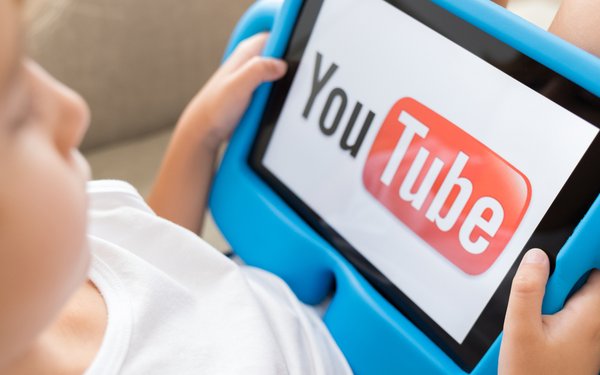
Google will pay
$170 million to settle allegations that YouTube violated children's privacy laws by collecting data from children younger than 13, the Federal Trade Commission announced Wednesday.
The
proposed settlement also calls for Google to develop a system aimed at ensuring compliance with the Children's Online Privacy Protection Act, which prohibits website operators from knowingly
collecting data used for behavioral advertising from children younger than 13 without their parents' consent. That data includes information about users' activity across other websites and apps, IP
addresses and geolocation.
FTC Chairman Joseph Simons said Wednesday that the enforcement action “sends strong messages” to companies, including ones that power online advertising.
“For YouTube -- and other third parties like it that serve ads -- they cannot market their ability to get child viewers on one hand, and disavow knowledge that children are using their service
on the other,” he stated.
advertisement
advertisement
“The order prevents the companies from turning a blind eye to the existence of kids’ content on YouTube,” Simons added.
Among other
settlement terms, the proposed order prohibits YouTube from benefitting from any data previously collected from child-directed videos or channels. The proposed settlement also obligates YouTube to
take steps beyond the requirements of the children's privacy law; among others, YouTube must affirmatively notify channel owners about their obligations to avoid collecting data from children younger
than 13.
YouTube said Wednesday that it will limit data collection on videos made for children, even if the people watching the videos are older than 12. The company also says it will stop
serving behaviorally targeted ads on videos made for children, and will turn off comments and notifications on those videos.
In addition, the company says it will “use machine learning
to find videos that clearly target young audiences, for example those that have an emphasis on kids characters, themes, toys, or games.”
The proposed agreement calls for YouTube to pay
$136 million to the FTC and $34 million to New York. The FTC and New York Attorney General have asked the U.S. District Court in Washington, D.C. to approve the deal. New York state previously prosecuted four companies -- Viacom, Mattel, Hasbro and Jumpstart -- for
allegedly allowing young visitors to be tracked by third parties for ad-targeting purposes. Last year, New York separately fined Verizon's Oath $5 million over alleged violations of the children's privacy
law.
News of the settlement with YouTube comes more than one year after a coalition of advocacy groups -- including Center for Digital Democracy, Campaign for a Commercial-Free Childhood,
Electronic Privacy Information Center and Public Citizen -- asked the FTC to prosecute YouTube over its “illegal collection”
of tracking data.
Google argued last year that the terms of service at YouTube.com state that the site is not intended for children younger than 13. Instead, Google said it offers a
child-focused video site, YouTube Kids, which doesn't allow behaviorally targeted ads. But the advocates contended that more children watch clips on YouTube's main site than the specialized
YouTube Kids.
The original complaint referenced a Common Sense survey that asked parents whether their children under the age of 18
watch videos on YouTube -- and if so, on which of the company's services; 44% of the parents said their children use the general YouTube.com site.
The FTC alleges in its complaint, also unveiled Wednesday, that YouTube “hosts numerous channels that are 'directed to
children,'” as that term is defined by the federal children's privacy law.
The agency adds that Google markets YouTube to Mattel, Hasbro and other companies as a "top destination
for kids."
In a presentation to Mattel, Google allegedly stated: “YouTube is today’s leader in reaching children age 6-11 against top TV channels.”
And a presentation
to Hasbro allegedly included the boasts, “YouTube was unanimously voted as the favorite website for kids 2-12,” and “93% of tweens visit YouTube to watch videos.”
The
Republican-dominated agency voted 3-2 to approve the settlement, with the two Democratic Commissioners dissenting on the grounds that the penalties aren't tough enough.
The watchdogs Campaign
for a Commercial-Free Childhood and Center for Digital Democracy gave the settlement a mixed review.
The groups stated Wednesday that the terms are likely to “significantly reduce
behavioral marketing to children on YouTube,” but added that the deal “doesn’t do nearly enough to ensure children will be protected or to hold Google accountable.”
The
FTC's prosecution of YouTube seems to reflect an expansive interpretation of the children's privacy law, according to Santa Clara University law professor Eric Goldman.
“I think the
FTC's breaking some new ground here,” he says.
The children's privacy law only prohibits website operators from collecting data when they know users are under 13.
In the past,
the FTC has found companies to have that knowledge in two situations -- when they collect data revealing users' ages, or when most of the content on the site is clearly aimed at children. But the
complaint against YouTube doesn't include either of those allegations.